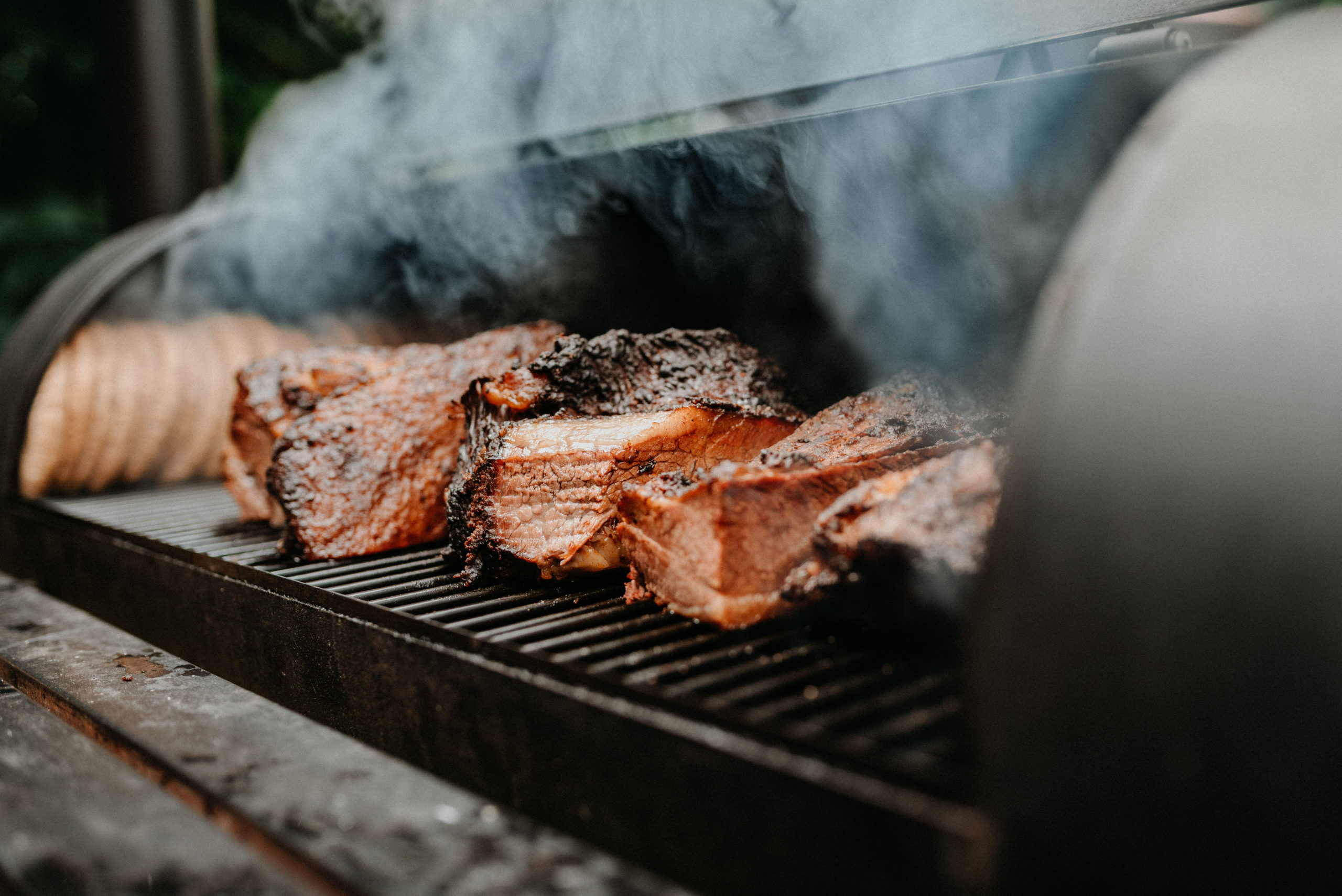23 Tips to Barbecue Safely at Home

Summer is prime barbecuing season—although Canadians are known to fire up the outdoor grill in all weathers. While barbecuing is a wonderful way to produce tasty food, barbecues and other outdoor cooking equipment come with hazards. These hazards include:
Fires
Smoke
Carbon monoxide
Fuel leaks (propane, natural gas, et cetera)
Burns
Food-related illnesses
Follow these tips to minimize your risk and barbecue safely at home.
Tip #1 – Follow manufacturer instructions for installation and operation of your grill.
Tip #2 – Position your grill on a flat surface.
Tip #3 – Ensure your grill has adequate free space around it and isn’t next to your home, fencing or plants nor placed under an overhanging roof. Never barbecue indoors!
Tip #4 – Always use the correct type of fuel for your cooking equipment.
Tip #5 – Never use flammable solvents to start grills. For example, if you have a charcoal grill, use a chimney and fire starter block rather than lighter fluid.
Tip #6 – Don’t overload the grill (this can cause excess fat and trigger a flare up).
Tip #7 – Cook meat and vegetables in separate areas of the grill.
Tip #8 – Don’t move a lit barbecue.
Tip #9 – Never leave your barbecue unattended when in use.
Tip #10 – Wash hands frequently, especially before and after handling raw meat.
Tip #11 – Never reuse utensils or plates if they’ve been used for raw meat. Use different dishes or wash them before using again.
Tip #12 – Cook meat properly (look up the proper cooking temperatures and check with a meat thermometer) and avoid charring your meat. Marinating meats and barbecuing at lower temperatures can help minimize charring.
Tip #13 – Use long-handled grilling tools to help prevent burns.
Tip #14 – Keep a spray bottle with water and a fire extinguisher handy. Make sure you know how to operate the extinguisher and it is in good working order.
Tip #15 – Wear appropriate barbecuing clothes. We recommend leather or treated canvas aprons.
Tip #16 – Keep children and pets away from the grill.
Tip #17 – Clean your barbecue regularly to stop grease buildup.
Tip #18 – Choose a non-metal bristle grill brush. If you do clean with a bristle brush, wipe down the grill afterwards. This helps prevent bristles from getting into food and causing internal injuries.
Tip #19 – Ensure the grill fuel is turned off after you’re finished cooking. If there are ashes, make sure they are cold before they are disposed of.
Tip #20 – Don’t let food sit out. Refrigerate within two hours and discard cooked food that has sat out for longer.
Tip #21 – Check regularly for gas leaks, blocked burners, and damaged or leaking fitting and hoses.
Tip #22 – Fuel cylinders should be stored upright, outside and away from any ignition sources. These should be replaced if damaged or rusty and re-certified or tested as per the date on the cylinder.
Tip #23 – Don’t store your utensils in the grill portion of your barbeque. You might forget they’re there and accidentally start a fire when you light your barbeque!
Am I covered?
If your barbecue causes a fire, you will be covered by your home insurance policy as long as the fire wasn’t started intentionally. The extent of your coverage will depend on your individual policy.
You can review your policy documents via our online web portal or mobile phone app. You can also give one of our brokers a call to discuss your coverage.







